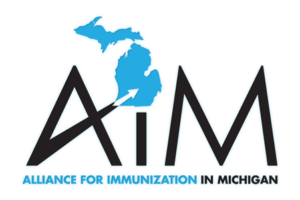Fever
September: Fever and Your Child
Now that school is back in session, and some of our children are in small rooms with 25 or more other children, there’s no better time to talk about fevers. With the cold and flu season looming around the corner, fevers are likely to make an appearance in your household, because let’s face it, children stink at preventing the spread of germs. Contrary to popular belief, however, fevers aren’t always bad. In fact, a fever can be quite helpful while your child is fighting an infection and shouldn’t be something to fear.
Fever Definition
Before starting, lets take a minute to define a fever. A fever is a rise in the body temperature above 100.4 degrees F, regardless of whether your child tends to “run cooler” than normal or not. A temperature can be taken several ways, but the most accurate methods of testing are either rectally (in the bottom), or orally (in the mouth) if your child is at least 4 years old. Other methods of taking a temperature are under the arm (axillary), in the ear (tympanic), and on the forehead. These methods may be easier and better tolerated by your child, but the readings may not be reliable and you may be asked to verify the temperature either rectally or orally if you call our office for advice.
Causes of Fever
Fevers can arise for many reasons, but the most common causes during childhood are viral and bacterial infections. Examples of viral infections that may cause fevers are:
- the common cold
- RSV/bronchiolitis
- influenza
- croup
- gastroenteritis (vomiting and diarrhea)
And examples of common bacterial infections in children may include:
- ear infections
- pneumonia
- urinary tract infections
Vaccinations may also cause the body temperature to rise in some children as well.
When to Contact our Office
Most of the time fevers can be treated at home with a fever-reducer, fluids and rest, but there are times when a fever may require an evaluation in our office. These include:
- an infant under 3 months old with a fever of 100.4 or higher, regardless of how they’re acting.
- children aged 3 months to 36 months with a fever of 100.4 or higher for more than 72 hours, or if they’re acting ill.
- children aged 3 months to 36 months with a fever of 102 or higher.
- children at any age with a fever >100.4 for more than 72 hours with no obvious source of infection, or if they have recurrent fevers for more than 7 days if there is a source (like a cold, for example).
Call our office right away if your child has a fever and:
- doesn’t respond to you or is limp
- has trouble breathing
- has blue lips, tongue or nails
- starts to lean forward and drool
- is an infant and has a bulging or sunken soft spot
- has a stiff neck
- has a severe headache
- has severe belly pain
- has a rash or purple spots on the skin (red freckles)
- refuses to drink
- will not stop crying
Treatment of Fever
So now that you’re familiar with the most common causes of fevers, and when to call our office, lets take a minute to talk about how and whether or not to treat a fever. I’d like you to think of a fever as the body’s natural defense against an infection, whether it be viral or bacterial. When your child develops an infection, the body temperature may rise to try to kill whatever is causing it, which can be helpful in the disease process and recovery. Unfortunately, a fever can also make your child quite uncomfortable. So when you’re thinking about whether or not to treat your child with a fever-reducer such as acetaminophen (Tylenol) or ibuprofen (Motrin/Advil), I’d like you to consider how your child is feeling. If your daughter has an elevated temperature but is playing, drinking and eating, treatment may not be necessary, but if she’s lying on the couch, crying and clearly doesn’t feel well, using one of those medications may be appropriate. The degree of your child’s temperature is not always a good indicator on when to give a medication, but rather how he or she is acting. You can find proper dosing for acetaminophen and ibuprofen by clicking on this link: https://hollandpediatrics.com/dosage-chart/.
Please be advised that we do NOT recommend alternating acetaminophen and ibuprofen, as this may lead to dosing errors. Instead, choose one medication and stick with the same one unless we advise you to switch. Aspirin should NEVER be used as a fever-reducer in children under 18 years old.
One other thing to keep in mind, is that an elevated temperature may cause your child to become dehydrated. Because of this, it is important to make sure that your child is drinking plenty of fluids. Your child may not want to eat as much as usual, and that is fine, but he must drink fluids, so encourage sips frequently. You can offer anything your child would normally drink, but if you’re having trouble getting fluids in, Jello, ice chips and popsicles may be good alternatives.
Thank you for reading through and I sure hope this helps to alleviate some anxiety regarding fevers during the upcoming cold and flu season! If you still aren’t sure if your child requires an evaluation, please call our office to speak with the advice line, or send us a message on the patient portal, and we’ll be happy to help you decide.
Have a wonderful day,
Angela Smith, CPNP





















